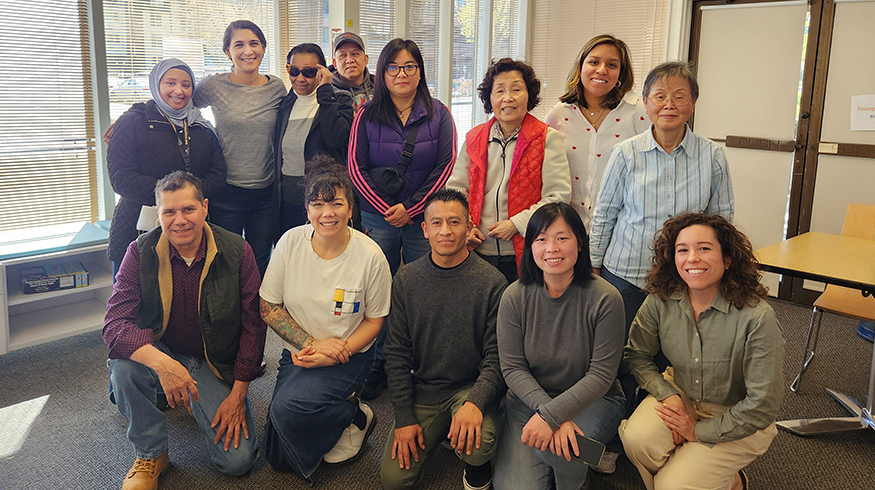
We all have stories to share. Stories about our lives, stories passed down through generations, stories that reflect our culture.
Recognizing the power of stories, Cristina Sánchez-Martín, assistant professor in the UW Department of English, and Taiko Aoki-Marcial, UW PhD candidate in English language and rhetoric, created a storytelling workshop and course for community members learning English as a second language (ESL). Grants from the Simpson Center for the Humanities in the UW College of Arts & Sciences, and Humanities Washington, supported the project, titled “Translationships: stories, languages, and communities."

Both educators had existing relationships with multilingual communities in the Seattle area — Sánchez-Martín with Casa Latina, Aoki-Marcial with Literacy Source. With this project, they saw an opportunity to add a new dimension to that work.
Aoki-Marcial, an ESL educator for years, explains that ESL programs tend to focus on practical information. “Many ESL students spend a long time in classes that have the same focus year after year, driven by expectations of what you need English for,” she says. “People don’t have opportunities to be creative or to learn about other students’ cultures or express their own culture in those classes. We wanted to provide that opportunity and build a sense of community.”
The project has been a pedagogical study as well, with graduate students serving as research assistants. The graduate students come from three UW programs: the Masters of Arts for Teachers of English to Speakers of Other Languages (MATESOL) in the Department of English, the Department of Spanish and Portuguese Studies — both in the College of Arts & Sciences — and the Masters of Education in Educational Policy, Organization and Leadership in the College of Education.
I think people appreciate having a space to be more creative within the English language classroom, instead of just doing one more role play about going to the bank.
Eight community members participated in the two-part workshop, held on the UW campus. Aoki-Marcial and Sánchez-Martín then developed the course, held at Literacy Source with a new group of six participants. “In the workshop, there was so much richness to explore in terms of language, culture, learning, and what it’s like to be a person between languages,” says Sánchez-Martín. “We created the course because we didn’t want to miss out on those opportunities for rich details. Having eight sessions gave us time to get to know everyone more and really build community.”
Participants were not expected to dive into storytelling immediately. In both the workshop and course, Sánchez-Martín and Aoki-Marcial first talked about storytelling traditions, particularly Indigenous storytelling. “We shared a story from this area, from the Coast Salish people, to have the group think about the land we’re on and what storytelling means for communities here,” says Sánchez-Martín.
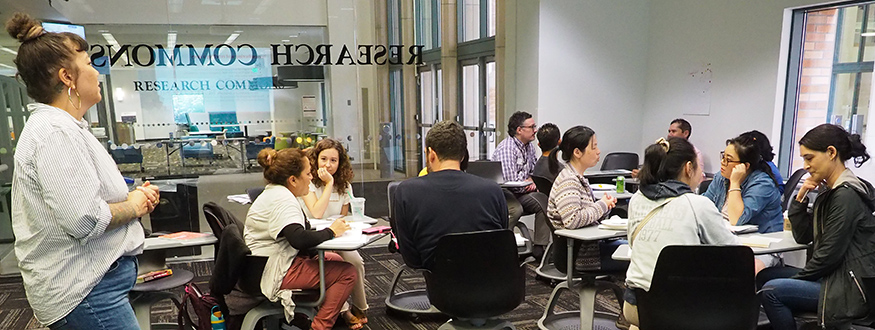
The participants were then asked to tell a story that was meaningful to them, sharing it in their first language. The research assistants, and other volunteers with fluency in the languages represented, provided feedback and helped unravel meaningful aspects of the stories. After honing their story, the storytellers began the process of translating the story into English.
A direct translation often does not capture the spirit of a story, so the storytellers had to consider using different words or phrases for an impactful translation. “There may be words or expressions that are untranslatable,” says Sánchez-Martín. “And so, with our help, they had to figure out how to merge what they know in their first language with what English-speaking audiences might expect.”
The resulting stories have included fables, folktales, and community lore with personal meaning for the storytellers. Many stories are now posted on Translationships, the project website. Each story is shared in the storyteller’s first language, with English translations included for most.

The website also features a Translationships podcast, with three episodes currently available. Sánchez-Martín and Aoki-Marcial chat with two or three program participants in each episode, discussing their stories and the experience of sharing those stories in English. Participants provide context for their story, including memories of hearing it for the first time, and what it means to tell it to others. “They’ll tell us that they heard a story when they were five years old from their grandmothers, and now they tell it to their children,” says Sánchez-Martín. “All of those details around the story are important. The podcast gives us the space to have those conversations.”

In developing the Translationships website, Sánchez-Martín and Aoki-Marcial found their participation in the Simpson Center’s Digital Humanities Summer Fellowship invaluable. Through the fellowship, they met regularly with other digital humanities fellows to discuss working in digital spaces and how digital technology could broaden the impact of their work. They had a similar experience through their Humanities Washington (HW) Public Humanities Fellowship, meeting with other HW fellows whose projects also focused on aspects of storytelling. In this way, the fellowships provided both idea-sharing and financial support.
That financial support enabled Sánchez-Martín and Aoki-Marcial to hire research assistants — critical to the success of the project — and provide stipends to the community participants. “We felt it was important to compensate the participants for their time and their energy and their generosity in sharing their stories with us,” says Aoki-Marcial.
As the Translationships project wraps up, Sánchez-Martín and Aoki-Marcial hope its impact can continue. They plan to add a website link that will enable the public to submit more stories for inclusion on the site. And, working with UW MATESOL students in the Department of English, they have created pedagogical resources available to any language instructor interested in engaging storytelling in their classroom.
The hope, says Aoki-Marcial, is to encourage creativity and community-building in more ESL classrooms.
“I remember a student telling me how much he used to love to write and make art and play music,” says Aoki-Marcial. “I think people appreciate having a space to be more creative within the English language classroom, instead of just doing one more role play about going to the bank.”
More Stories
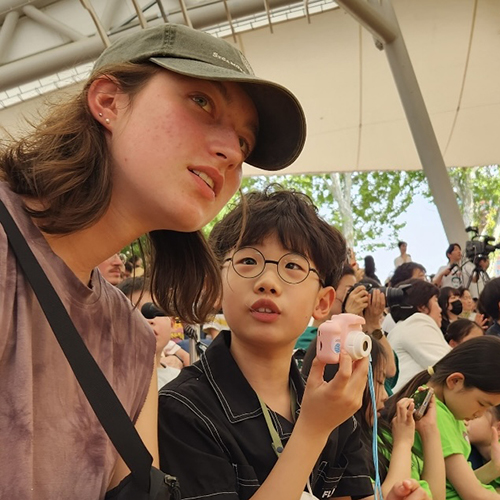
Finding Family in Korea Through Language & Plants
Through her love of languages and plants — and some serendipity — UW junior Katie Ruesink connected with a Korean family while studying in Seoul.
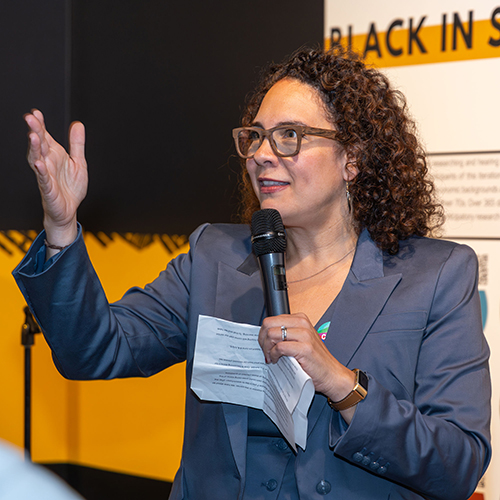
Interrupting Privilege Starts with Listening
Personal stories are integral to Interrupting Privilege, a UW program that leans into difficult intergenerational discussions about race and privilege.
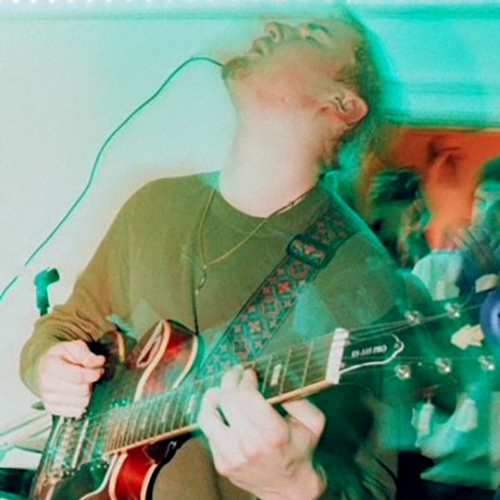
Celebrating Contemporary Indigenous Music
Markus Teuton, a musician and citizen of Cherokee Nation, explores contemporary Indigenous music through his academic work and as host of “Indigenous Jazz,” a radio show.
